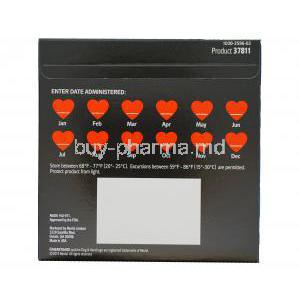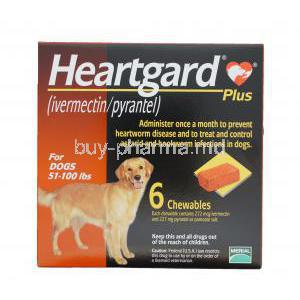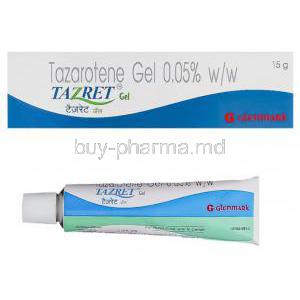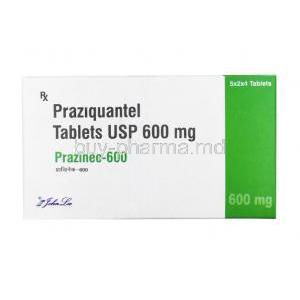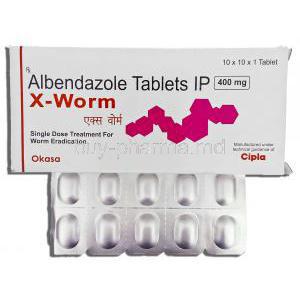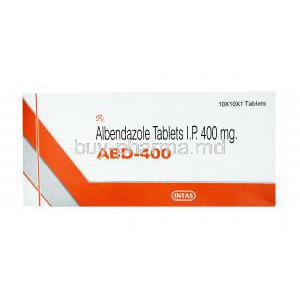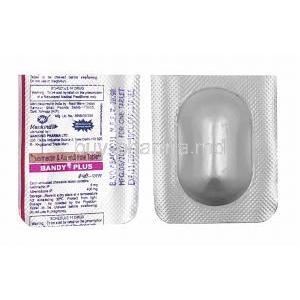Heartgard Plus Chewable for Dogs
- Introduction
- Composition and Active Ingredients
- How Heartgard Plus Works
- Uses and Off-Label Uses
- Dosage and Administration
- Storage and Handling Precautions
- Heartgard plus side effects
- Drug Interactions and Contraindications
- Special Considerations for Specific Groups
- Heartgard overdose and Toxicity Risks
- Important Precautions and Warnings
- Conclusion
Introduction
Overview of Heartgard Plus Chewable
Heartgard Plus Chewable is a veterinarian-recommended preventive medication designed to protect dogs from heartworm disease and intestinal parasites. It is a beef-flavored chewable tablet that provides a simple, palatable solution for monthly parasite prevention.
- Definition and Purpose: Formulated to eliminate heartworm larvae before they mature into harmful adult parasites.
- Importance of Heartworm Prevention: Heartworm disease can cause severe damage to a dog's heart, lungs, and blood vessels, leading to potentially fatal complications.
- Key Benefits: Easy to administer, highly effective, and dual-action protection against heartworms and intestinal parasites like roundworms and hookworms.
Manufacturer and Approval Status
Heartgard Plus is manufactured by Boehringer Ingelheim, a leading pharmaceutical company specializing in veterinary medicine.
- FDA Approval: The U.S. Food and Drug Administration (FDA) has approved Heartgard Plus as a safe and effective treatment for heartworm prevention.
- Veterinary Recommendation: Widely endorsed by veterinarians due to its efficacy and safety profile.
Why Heartworm Prevention is Essential
Heartworm disease is caused by the parasite Dirofilaria immitis, which is transmitted through mosquito bites. Once infected, the larvae mature and lodge in the heart and lungs, leading to potentially life-threatening complications.
- Risks of Untreated Infections: Without treatment, heartworm disease progresses to congestive heart failure, organ failure, and death.
- Regular Preventive Treatment: Monthly administration of Heartgard Plus ensures complete protection, reducing the risk of long-term complications.
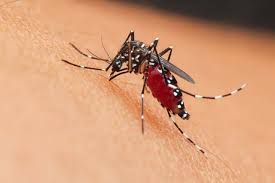
Composition and Active Ingredients
Heartgard active ingredient
- Ivermectin: Kills heartworm larvae in the early stages, preventing their development into adult worms.
- Pyrantel Pamoate: Targets and eliminates intestinal parasites such as roundworms and hookworms.

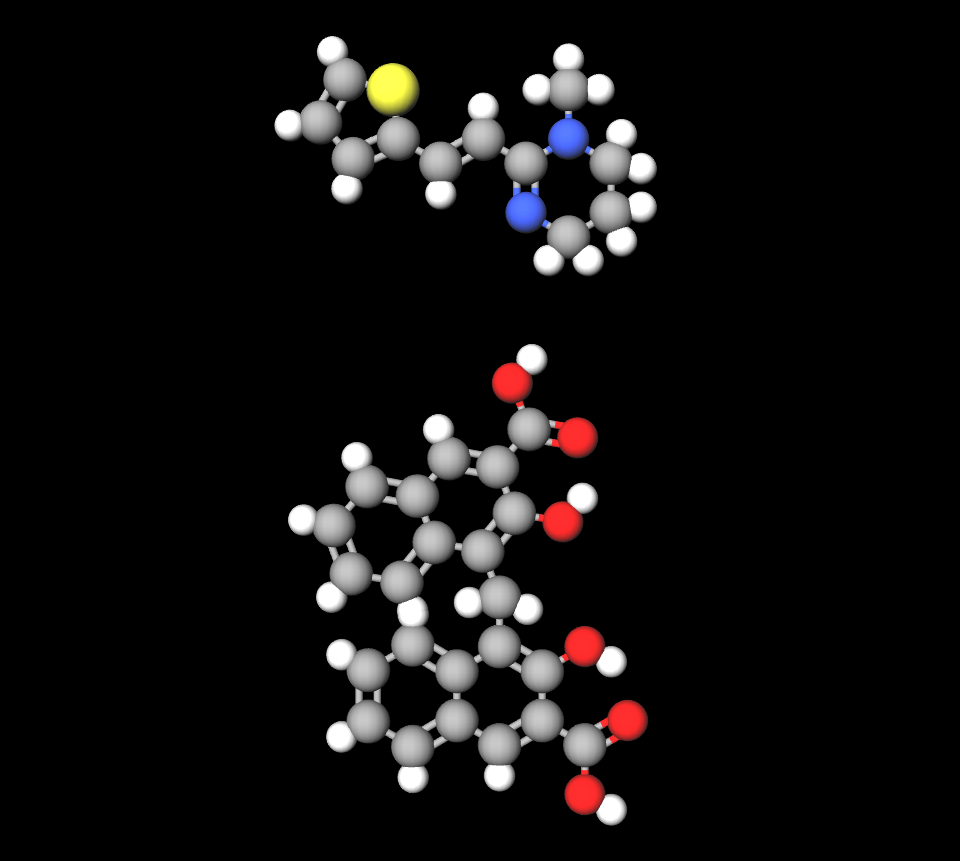
Additional Inactive Ingredients
- Chewable Formulation: Made with a beef-flavored base to enhance palatability.
- Flavoring Agents: Ensures ease of administration, even for finicky eaters.
Heartgard and nexgard
Heartgard and Nexgard are tablets that help with fighting off parasites in dogs. Heartgard is mainly for preventing heartworm and dealing with other parasites; meanwhile, Nexgard focuses more specifically on treating fleas, ticks, and mites in dogs.
Heartgard vs heartgard plus
Heartgard is designed to prevent heartworms specifically, while Heartgard Plus offers protection against not only heartworms but hookworms and roundworms as well, as other intestinal parasites known as ascarids.
Interceptor plus vs heartgard
Interceptor protects against heartworm disease caused by Dirofilariasis immitis. It also helps prevent hookworm infections along with roundworm and whipworm infections in dogs while controlling adult hookworm infections and eliminating adult roundworm and whipworm infections.
Simparica trio vs heartgard
You can give Simparica Trio to puppies weighing over 2 pounds and at 2 months old, whereas Heartgard Plus is safe for puppies as young as 6 weeks old.
Sentinel vs heartgard
Heartgard Plus is suitable for puppies as young as 6 weeks old, and Sentinel can be used starting at 4 weeks of age; both medications help protect against heartworm disease.
Nuheart vs heartgard
Heartgard Plus is a medication that helps protect dogs from heartworms, while Nuheart serves as an alternative to Heartgard.
Proheart 12 vs heartgard
Heartgard is given by mouth once a month, while ProHeart is given through an injection that provides protection for a year.
Trifexis vs heartgard
Trifexis and Heartgard are two types of tablets used to protect dogs from heartworm and intestinal parasite infections; Trifexis goes a step further by eliminating fleas, while Heartgard focuses solely on preventing heartworms and treating intestinal parasites in dogs.
How Heartgard Plus Works
Mechanism of Action
Using Ivermectin disrupts the nerve signals in the larvae of heartworms, which causes paralysis and eventually leads to their death.
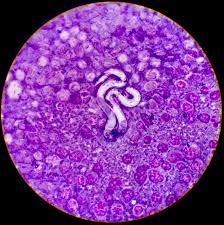
Onset and Duration of Effectiveness
- Timeframe for Prevention: Works within 24 hours to eliminate newly acquired larvae.
- Duration: Provides protection for 30 days, requiring monthly dosing.
Heartgard flea and tick
- Heartworms: Dirofilaria immitis
- Roundworms: Toxocara canis, Toxascaris leonina
- Hookworms: Ancylostoma caninum, Uncinaria stenocephala
Uses and Off-Label Uses
Approved Uses
- Prevents heartworm disease in dogs.
- Treats and controls intestinal roundworm and hookworm infections.
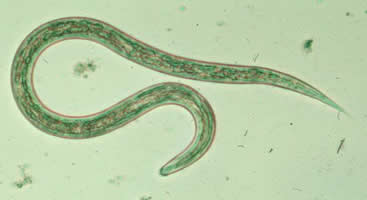
Off-Label Uses
- Used in combination with other antiparasitic treatments for broader protection.
- Investigated for potential efficacy in controlling other parasitic infections.
Dosage and Administration
Heartgard dosing
- Available in different dosages for various weight categories.
- Administer once a month, year-round, for continuous protection.
How to Administer Heartgard Plus Chewable
- Give the chewable directly or mix with food.
- If the dog refuses, consider crushing and blending with a treat.

What to Do If a Dose is Missed
- Administer as soon as remembered.
- Resume regular dosing schedule without doubling the dose.
Storage and Handling Precautions
Proper Storage Conditions
- Keep at room temperature (below 77°F or 25°C).
- Store in a dry location, away from direct sunlight.
Safe Handling Instructions
- Keep out of reach of children.
- Dispose of unused medication responsibly.
Heartgard plus side effects
Common Side Effects
- Occasional vomiting or diarrhea.
- Temporary loss of appetite or lethargy.

Less Common but Serious Side Effects
- Neurological reactions such as tremors or seizures.
- Allergic responses, including facial swelling or difficulty breathing.
When to Contact a Veterinarian
If you experience long-lasting side effects, please seek attention promptly.
Drug Interactions and Contraindications
Potential Drug Interactions
- Use with caution alongside other antiparasitic medications.
- Compatible with most flea and tick preventatives.
Contraindications for Use
- Not suitable for dogs allergic to ivermectin or pyrantel.
- Breeds prone to ivermectin sensitivity (e.g., Collies, Shetland Sheepdogs) require careful monitoring.

Heartgard alternative
- Sentinel Spectrum,
- Interceptor Plus,
- NexGard,
- Tri-Heart Plus.
Special Considerations for Specific Groups
Administration to Puppies and Young Dogs
Ensuring the safety and efficacy of Heartgard Plus in young dogs requires adherence to specific age and weight guidelines. Puppies are particularly vulnerable to parasitic infections, making early intervention crucial.
- Safe Age for Starting Treatment: Heartgard Plus is approved for puppies as young as six weeks old. Administering the medication at this stage helps protect against early exposure to heartworm larvae transmitted by mosquitoes.
- Adjusting Dosage for Growing Dogs: As puppies rapidly gain weight, dosing adjustments may be necessary. The correct dosage is determined based on body weight, ensuring optimal efficacy without overmedication.

Administration to Elderly Dogs
Aging can alter a dog's metabolism and immune function, making it essential to consider unique factors when administering Heartgard Plus to senior pets.
- Special Considerations for Senior Dogs: Older dogs may have pre-existing conditions such as reduced liver or kidney function, which can affect how medications are processed. A veterinarian may recommend periodic health assessments to ensure continued compatibility.
- Monitoring for Increased Sensitivity to Side Effects: Some senior dogs may exhibit heightened sensitivity to ivermectin, leading to mild neurological symptoms or gastrointestinal distress. Close observation after administration is advised.
Administration to Pregnant or Nursing Dogs
The safety of medications in breeding females is a critical aspect of veterinary medicine. While Heartgard Plus is generally considered safe for pregnant and lactating dogs, precautions should be observed.
- Safety During Pregnancy and Lactation: Extensive studies have not shown adverse effects in pregnant or nursing dogs. However, consulting a veterinarian before administering the medication ensures risk mitigation tailored to the dog's health status.
- Potential Risks to Puppies Through Milk Transmission: Though unlikely, trace amounts of ivermectin could be excreted in milk. Monitoring newborn puppies for any unusual symptoms, such as lethargy or weakness, can help ensure their safety.
Heartgard overdose and Toxicity Risks
Symptoms of Overdose
Accidental overdose of Heartgard Plus can lead to serious health complications, particularly in ivermectin-sensitive breeds. Symptoms can manifest rapidly or progressively, depending on the dosage ingested.
- Neurological Signs: Overdose can cause tremors, disorientation, ataxia (loss of coordination), and, in severe cases, temporary or permanent blindness.
- Severe Gastrointestinal Distress: Dogs experiencing overdose may exhibit excessive drooling, vomiting, or diarrhea, leading to dehydration.
Immediate Actions in Case of Overdose
Swift action is essential when an overdose is suspected. Early intervention can significantly improve prognosis and reduce long-term health consequences.
- Steps to Take at Home Before Veterinary Intervention: If ingestion of excessive doses is observed, induce vomiting only under veterinary guidance. Providing activated charcoal may help reduce systemic absorption.
- When to Seek Emergency Veterinary Care: Immediate veterinary assistance is required if severe neurological symptoms appear. Intravenous fluids, anti-seizure medications, and hospitalization may be necessary.
Long-Term Effects of Overdose
Depending on the severity of toxicity, long-term consequences may persist, particularly in sensitive breeds.
- Potential for Lasting Neurological Damage: In severe cases, ivermectin toxicity can lead to prolonged nerve dysfunction, causing permanent coordination issues or vision impairment.
- Recovery Prognosis for Affected Dogs: Dogs receiving prompt treatment generally recover well. However, severe overdoses may require ongoing supportive care and neurological rehabilitation.
Important Precautions and Warnings
Precautions for Dogs with Health Conditions
Heartgard Plus is safe for most dogs, but those with underlying health conditions may require additional caution.
- Considerations for Dogs with Liver or Kidney Disease: Dogs with compromised liver or kidney function may metabolize medications differently. Periodic veterinary monitoring ensures that the medication does not exacerbate existing conditions.
- Use in Dogs with a History of Seizures: Though rare, ivermectin has been associated with neurological effects in susceptible dogs. Dogs with a history of seizures should be closely monitored after administration.

Veterinary Monitoring Recommendations
Regular veterinary evaluations help maintain the safety and efficacy of Heartgard Plus in long-term use.
- Importance of Annual Heartworm Testing: Even with consistent prevention, annual testing for heartworms is recommended to ensure effectiveness and detect possible infections early.
- Routine Check-Ups for Dogs on Long-Term Treatment: Long-term use of any medication warrants periodic health assessments to detect potential side effects or interactions with other treatments.
Handling Precautions for Pet Owners
Proper handling and storage of Heartgard Plus reduce risks for both pets and humans.
- Safe Storage and Administration Tips: Store in a cool, dry place, away from direct sunlight and out of reach of children. Ensure the correct dosage is administered to prevent accidental overdose.
- Risks Associated with Human Exposure to Ivermectin: While low, unintentional human ingestion can cause dizziness, nausea, or allergic reactions. Always wash hands after handling the medication.
Conclusion
Heartgard Plus Chewable provides an essential safeguard against heartworm disease and intestinal parasites, ensuring canine health and longevity. Its efficacy, ease of administration, and broad-spectrum protection make it a cornerstone of preventive veterinary care.
- Summary of Key Benefits: Reliable monthly protection, dual-action formula, and palatable chewable format.
- Final Recommendations for Responsible Pet Owners: Adherence to monthly dosing, veterinary monitoring, and proper administration are critical for maximizing benefits.
- Encouragement to Consult a Veterinarian: Professional guidance ensures tailored prevention strategies, addressing individual canine health needs.
Heartgard Plus Chewable for Dogs FAQ
- Will Heartgard deworm my dog?
- Do dogs really need Heartgard every month?
- What does Heartgard do for dogs?
- Are Heartgard and NexGard the same?
- How often should I give Heartgard?
- Is it OK to miss a month of Heartgard?
- What happens if I stop giving my dog Heartgard?
- Is Heartgard 100% effective?
- Does Heartgard have side effects?
- Is Heartgard also a dewormer?
- Can I give my dog NexGard and Heartgard at the same time?
- What is a substitute for Heartgard?
- Can too much Heartgard hurt a dog?
- How quickly does Heartgard work?
- Do dogs need Heartgard monthly?
- Can I give my dog expired Heartgard?
- Can Heartgard be given late?
- Can dogs get worms while on Heartgard?
- Can I skip a month of Heartgard?
- How long should you use Heartgard?
- Is Heartgard the same as Nexgard?
- Can dogs overdose on Heartgard?
- Is Heartgard safe?
- Can I cut Heartgard in half for a smaller dog?
Will Heartgard deworm my dog?
Heartgard Plus Chews are known for their effectiveness in fighting hookworms and roundworms, treating and managing three types of hookworms and two varieties of roundworms effectively, as these parasites can be harmful to dogs' health.
Do dogs really need Heartgard every month?
Heartworms need to be treated before they mature into adults. It's crucial to give heartworm preventives on time, monthly for oral products, and every 6 or 12 months for the topical ones.
What does Heartgard do for dogs?
It includes protection against roundworms and hookworms, while Heartgard Plus for dogs also safeguards against heartworm disease by eliminating the stage of heartworm development.
Are Heartgard and NexGard the same?
It helps protect against heartworm disease while also addressing and managing three types of hookworms and 2 types of roundworms in pet systems. Nexguard is effective in eliminating ticks and fleas. It is approved by the FDA for preventing Lyme disease by targeting Ioxdes scapularis ticks.
How often should I give Heartgard?
Once a month, year-round
Is it OK to miss a month of Heartgard?
Suppose two weeks have passed since you missed giving the dose of your dog heartworm prevention medication. It is recommended to consult with your veterinarian. They will probably suggest resuming the dosages per month and conducting a heartworm test for your dog in six months.
What happens if I stop giving my dog Heartgard?
Heartworm disease is triggered by a parasite called Dirofilariasis immitis that is spread through vectors and predominantly affects dogs of both the wild variety. If not addressed promptly with treatment measures, in place heartworm infection can progress to a stage leading to life-threatening health complications or even fatality.
Is Heartgard 100% effective?
95.4 to 95.6%
Does Heartgard have side effects?
Reported side effects of Heartgard include feelings of sadness or tiredness and loss of energy, such as vomiting and lack of appetite that may result in diarrhea or enlarged pupils and difficulty walking or maintaining balance leading to seizures and increased saliva production.
Is Heartgard also a dewormer?
Heartgard Plus chewables do not protect dogs aged 6 weeks and older from heartworm disease. It is also used to prevent hookworms and roundworms infection.
Can I give my dog NexGard and Heartgard at the same time?
Protect your pet from fleas and ticks with Nexgard while also considering using it alongside Heartgard for heartworm prevention treatment.
What is a substitute for Heartgard?
Interceptor Plus is a received chewable preventive with a chicken flavor that serves as an alternative to the commonly used Heartgard anti-heartworm medication on the market today.
Can too much Heartgard hurt a dog?
If you don't follow the directions for Heartgard properly and deviate from them in any way, it may lead to an overdose situation with symptoms like tremors occurring.
How quickly does Heartgard work?
Since it's taken by mouth in cases of roundworms and hookworms treatment, the parasites typically start to perish instantly; however, it could take around 3 to 4 days for all worms to be completely eliminated from the system.
Do dogs need Heartgard monthly?
Yes
Can I give my dog expired Heartgard?
No
Can Heartgard be given late?
Suppose the treatment is postponed for any length of time. Be it a delay or a prolonged one, administering Heartgard Plus promptly and adhering to the prescribed dosage schedule can help reduce the chances of adult heartworm formation.
Can dogs get worms while on Heartgard?
Yes
Can I skip a month of Heartgard?
If someone forgets to administer heartworm prevention for a month, they should provide the dose away. Then resume the monthly preventative routine from there on out.
How long should you use Heartgard?
All year long
Is Heartgard the same as Nexgard?
Both Nexgard and Heartgard serve purposes, though they have their differences too! Nexgard functions, as an solution to prevent fleas and ticks in addition to safeguarding against heartworms in dogs and puppies over 8 weeks old and weighing 5 lbs or more while Heartgard specifically focuses solely as a monthly oral preventive measure for heartworms, in dogs.
Can dogs overdose on Heartgard?
Excessive doses can lead to alterations in the system. Manifest symptoms include excessive salivation and stumbling about clumsily along, with weakness and shaking limbs, feeling confused and drowsily lethargic, experiencing dilated pupils and vision loss, or even slipping into unconsciousness and possibly death.
Is Heartgard safe?
For dogs 6 weeks and older
Can I cut Heartgard in half for a smaller dog?
No


